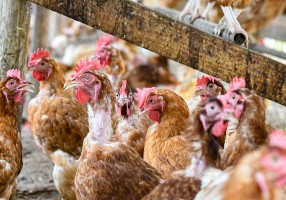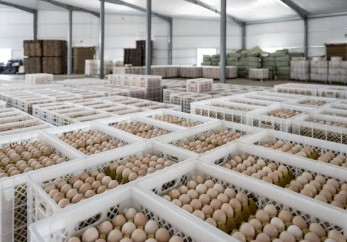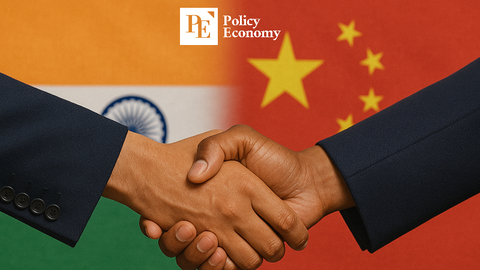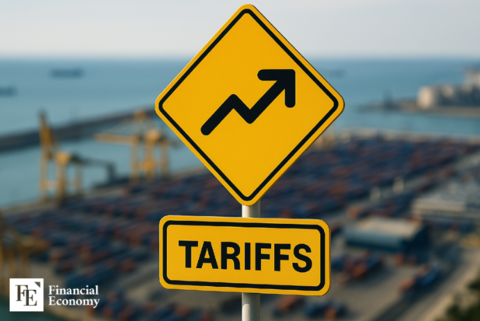Input
Changed
The Bird Flu Outbreak and the Collapse of U.S. Egg Supply International Support, Export Pressures, and Rising Prices Global Repercussions: Strained Alliances and Soaring Prices

The Bird Flu Outbreak and the Collapse of U.S. Egg Supply
The United States is facing a significant shortage of eggs due to the widespread impact of bird flu on domestic poultry farms. In response to this crisis, the U.S. has ramped up egg imports from a range of international suppliers. However, despite these efforts, the volume of eggs coming from foreign markets is insufficient to meet demand, and the global response has been less supportive than expected. One of the unintended consequences of this situation is the rise in egg prices in countries that are exporting eggs to the U.S., with South Korea being a notable example. As the U.S. scrambles to secure egg supplies, it faces challenges in its international relationships, and the broader global agricultural market is feeling the ripple effects of this crisis.
The bird flu outbreak that began in late 2024 has decimated U.S. poultry farms, leading to a drastic decline in the egg-laying population. This has resulted in a significant increase in egg prices, which, in turn, has caused panic among consumers and forced the U.S. government to seek alternative sources for its egg supply. The U.S. typically produces most of its eggs domestically, but the scale of the bird flu crisis has forced the country to consider importing eggs from its global allies.
Despite efforts to boost egg imports, the quantities available from foreign markets have proven inadequate. The countries that typically export large volumes of eggs to the U.S. are facing their own supply chain challenges and cannot meet the heightened demand. Additionally, some nations have been hesitant to increase exports, as the global egg market is already under strain due to factors such as rising feed prices and limited egg production capacities.

International Support, Export Pressures, and Rising Prices
Among the countries that have stepped in to help alleviate the U.S. egg shortage are South Korea and Türkiye. Both countries have ramped up egg exports to the U.S., hoping to alleviate some of the pressure on the American market. South Korea, in particular, has been able to send large quantities of eggs to the U.S. in recent months, though these supplies have not been enough to fully stabilize the U.S. market.
The decision to increase egg exports is not without consequences, however. South Korea is facing its own challenges with rising domestic egg prices, partly due to the export surge. As demand for eggs in the U.S. grows, South Korea’s own market has seen price increases, leading to domestic concerns over the affordability and availability of eggs for local consumers. The U.S. egg shortage, while helping South Korea’s egg producers in the short term, is creating a strain on its own egg prices, contributing to a phenomenon often referred to as “eggflation.”
Similarly, Türkiye, another major egg producer, has ramped up exports to the U.S. to help ease the shortage. Like South Korea, Türkiye’s efforts to help alleviate the U.S. crisis are also putting pressure on its own domestic prices, which are rising as a result of increased international demand. Although Türkiye’s egg production capacity is considerable, it is still not enough to offset the immense demand from the U.S., leaving many producers in a difficult position.
Despite the efforts of countries like South Korea and Türkiye to meet U.S. egg demands, the level of international support has been limited. Several other key egg-producing nations, including Poland, Finland, and Denmark, have opted not to increase exports to the U.S. due to their own internal pressures. These countries have rejected requests from the U.S., citing concerns about maintaining their own domestic supply and keeping egg prices stable at home.
For instance, Poland, traditionally a significant exporter of eggs, has declined to increase its shipments to the U.S., prioritizing its own domestic market. Similarly, Finland and Denmark, both of which are known for their strong agricultural sectors, have expressed reluctance to supply eggs to the U.S. at the expense of their own populations. These rejections highlight the complex and sometimes fraught nature of global agricultural trade, where countries are unwilling to compromise their own food security to assist another nation in crisis.
In this context, the U.S. has found itself in a difficult position. It has attempted to secure egg supplies from a wide array of international partners, but the response has been uneven. The reluctance of major egg exporters to step up their shipments to the U.S. reveals the limitations of global agricultural trade in times of crisis, when countries prioritize their own needs over international demands.

Global Repercussions: Strained Alliances and Soaring Prices
As the U.S. continues to grapple with the egg shortage, consumers are feeling the effects in the form of significantly higher prices at the grocery store. The price of eggs has skyrocketed, leading many Americans to adjust their consumption habits. For some, eggs are no longer a staple of the diet, while others are turning to alternative protein sources. The U.S. government has attempted to address the situation by easing import restrictions and exploring domestic solutions, but the effects of the bird flu outbreak are still being felt.
In addition to the economic impact on consumers, the situation has strained U.S. relations with some of its international trade partners. While countries like South Korea and Türkiye have responded positively to U.S. requests for egg exports, the refusal of other countries, such as Poland, Finland, and Denmark, has highlighted the challenges in global trade dynamics. The U.S. has historically been a key player in international trade negotiations, but in the case of egg imports, the country has found itself at the mercy of other nations’ decisions.
Moreover, the egg shortage and the scramble for international supplies have brought to light the complexities of the agricultural supply chain. The U.S. is not only competing with other countries for egg imports but also contending with broader supply chain issues, including the rising cost of feed, labor shortages, and transportation difficulties. These factors complicate the process of securing sufficient egg supplies and contribute to the persistent price increases.
The phenomenon of “eggflation,” as it has been dubbed, is not confined to the U.S. alone. As demand for eggs from countries like South Korea and Türkiye increases, the prices of eggs in these countries have risen as well. This ripple effect is being felt across the globe, as the shortage of eggs in the U.S. leads to higher domestic prices in exporting countries. South Korean consumers, for example, are experiencing significant price increases, making eggs less affordable for many householdsThis global cycle of rising egg prices has raised concerns about food insecurity in multiple regions. As one of the most commonly consumed food items worldwide, eggs play a crucial role in the diets of millions. The rising cost of eggs not only affects consumers but also places a burden on food industries that rely on eggs as an ingredient in various products. The global agricultural market is now seeing the consequences of the U.S. egg shortage, with interconnected effects that stretch far beyond the borders of North America.
The U.S. egg shortage, driven by bird flu, has prompted the country to seek increased imports from global suppliers. However, the response has been limited, with many countries prioritizing their own domestic needs and refusing to increase exports to the U.S. The scramble for eggs has raised prices both in the U.S. and in exporting countries like South Korea, leading to a phenomenon of “eggflation” that is affecting global food markets. As the U.S. continues to face supply challenges, it must confront not only the immediate crisis but also the broader implications of global agricultural trade and the complexities of international support in times of crisis





















